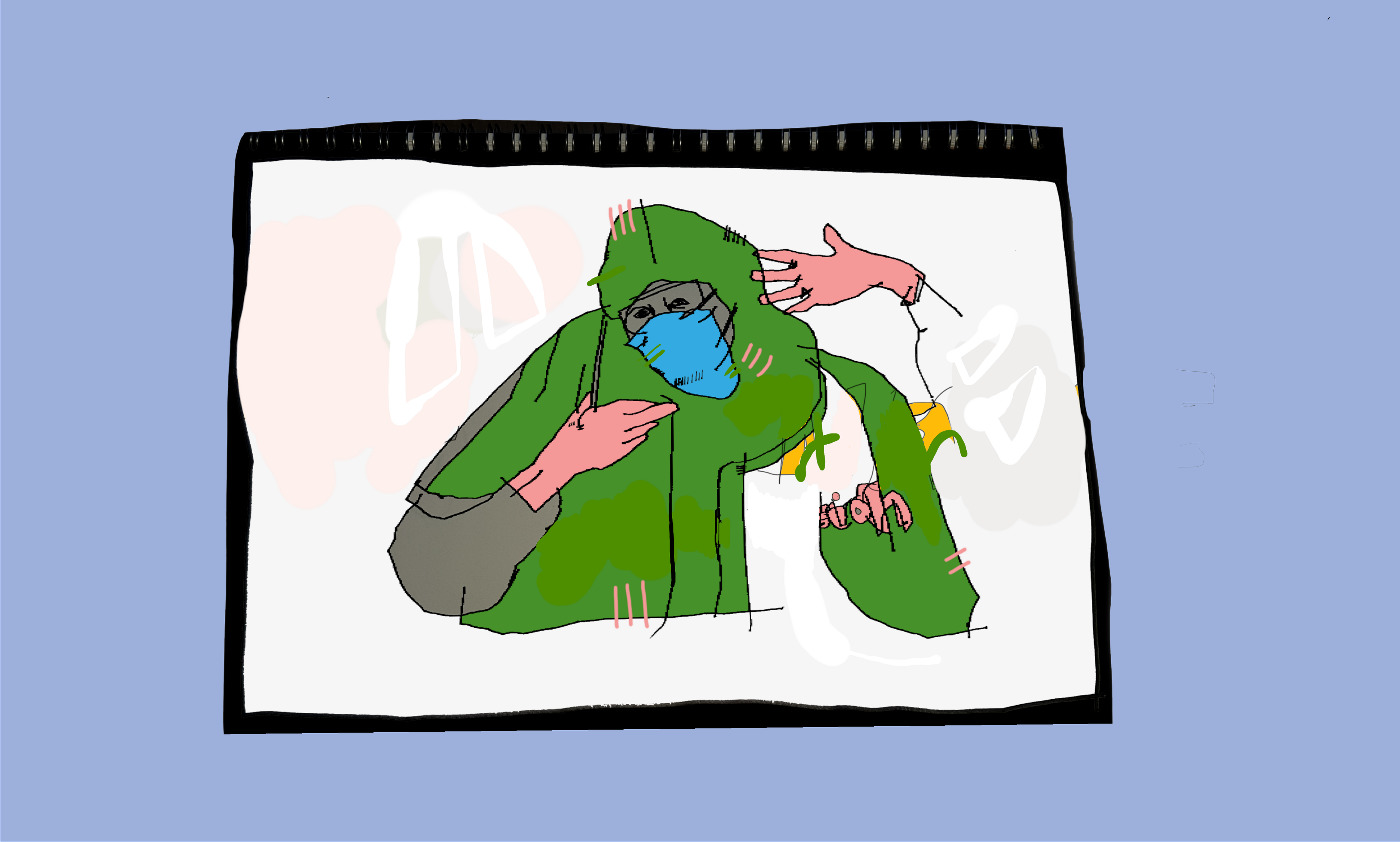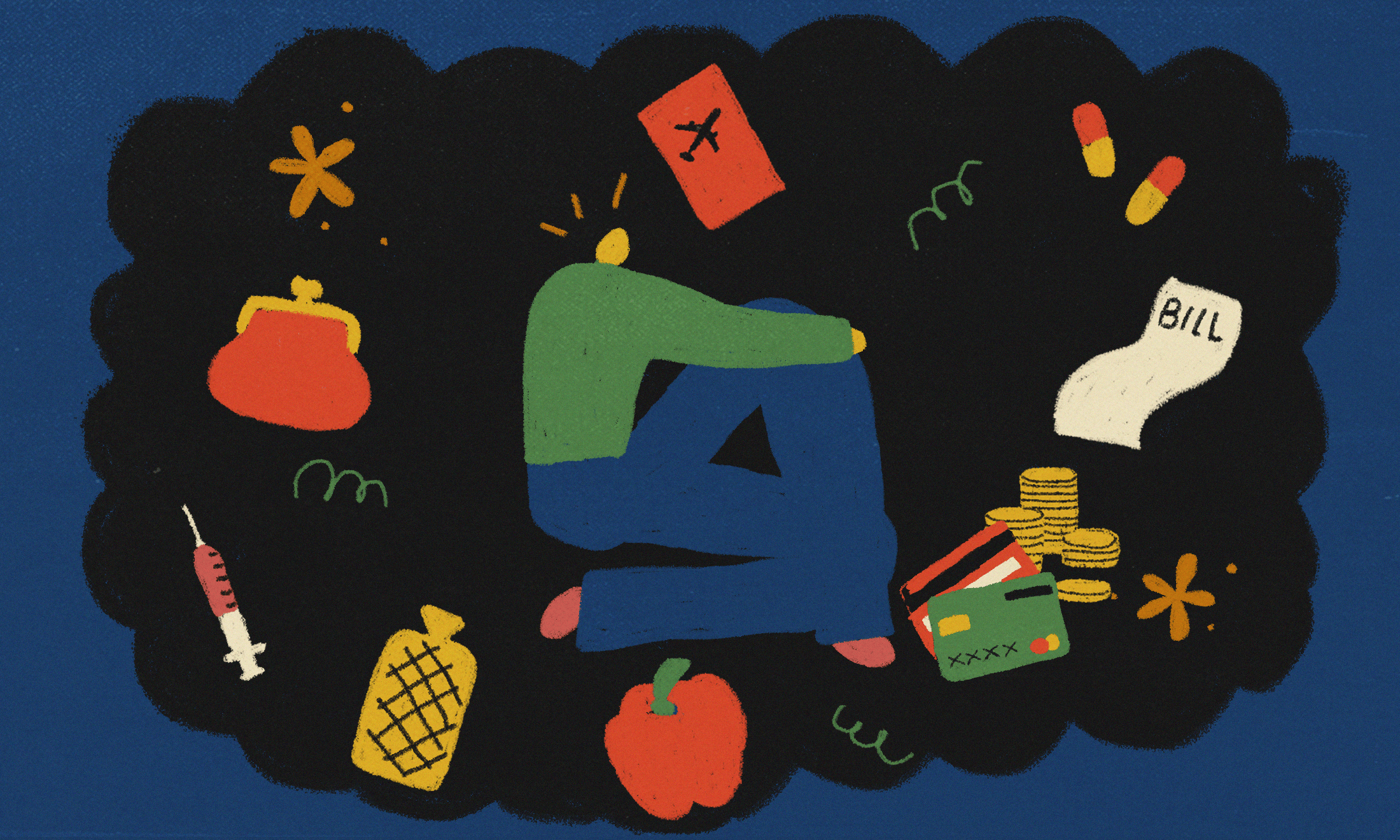
Illustration: Leyla Reynolds
Coronavirus is forcing much-needed change when it comes to sick pay
It might have taken a pandemic but people are finally talking about the need for state support, says Serena Barker Singh.
Serena Barker-Singh
17 Mar 2020
Illustration: Leyla Reynolds
Last week, Chinese president Xi Jinping visited Wuhan for the first time since the coronavirus outbreak began in December 2019. His presence was supposed to signal success in the fightback against the virus, and act as a nod that the “world’s workshop” would be back in business very soon.
Workers in Wuhan have experienced a complete shutdown for weeks and others across the country have been affected to varying degrees, depending on the severity of coronavirus clusters. In some rural areas many haven’t been able to get into work at all. Factories have virtually come to a standstill and businesses are suffering. Restaurants and stores have been forcibly shut, and in Hubei – the epicentre of the outbreak, where the Lunar new year holiday break has twice been extended – production lines have suffered as tens of millions have been kept at home in an effort to contain the virus. Most of China’s 300 million migrant workers remain isolated in sealed-off villages and towns, and the Chinese economy has suffered as a result. The epidemic is forcing bosses to reckon with both the intrinsic value of workers in global supply chains, and the job insecurity and insufficient sick pay which many workers are forced to accept.
Europe on the brink
Now, Europe is struggling with the same problem. Spreading as quickly as the virus is the worry over the impact of vast swathes of people needing to self-isolate – and the economic repercussions for them. Coronavirus has exposed the large holes in many sick pay safety nets, with governments having to dig deep into their pockets to fill the gaps. In Italy the prime minister has ordered a complete shutdown of the city, and announced measures to unlock €7.5 billion to help businesses and families hit by the coronavirus. In France, there is a ‘right of withdrawal’ clause where workers can leave work without their wages docked if they believe their health and safety to be at risk. Such rules could operate as a vaccine against the inevitable toll to low-paid workers if the coronavirus hits.
In the UK, Boris Johnson announced on 4 March that he would reform statutory sick pay, adding that “no one should be penalised for doing the right thing” by self-isolating in order to avoid a spread of the disease. The “reform” will enable the payment of statutory sick pay (SSP) – only £94 a week – from the very first day of sickness, rather than day four, as allowed by the current rules. But critics have pointed out that this allowance is meagre; it amounts to £18 a day. In comparison, the average weekly sick pay in Europe is £245.
Plus, these measures will not protect everyone. Bafflingly, they exclude the lowest paid who need support most; workers have to earn more than £118 a week in order to qualify for SSP, which will leave at least two million people out in the cold. This threshold also disproportionately affects people of colour, who experience a pay gap of £3.2bn in the UK, and women of colour in particular, like Bangledeshi and Pakistani women, who experience a gender pay gap with White British men of 26%. For Black African women, that gulf is 19.6%.
Boris’ “reforms” also don’t properly cover self-employed people or the roughly 1.8 million workers on zero-hour contracts. The UK’s Trades Union Congress (TUC) reports that PoC are over a third more likely than white workers to be in temporary or zero-hours work; out of the three million PoC workers in the UK, nearly a quarter of a million are in this type of work. Black workers in particular face insecurity at work and are more than twice as likely as white workers to be in temporary and zero-hours work. Citizens Advice UK predicts that five million self-employed workers and at least 1.5 million in low-income jobs will be left out by these statutory measures.
Workers are becoming fed up
According to Prospect, the union for engineers, managers, and scientists, these measures mean that freelancers and self-employed people will continue to face “the dilemma of no pay or going to work when it may be putting their colleagues at risk”. Especially vulnerable are hospital workers, who will lead the fight against the virus. Some of these workers have already spoken out about coming into work despite feeling unwell, fearing that they would not be able to make ends meet if they were told to quarantine for 14 days. GMB union corroborate this experience – stating that 77% of low paid workers say they are coming into work unwell – to avoid losing pay.
“In the meantime, it’s forced porters, cleaners and catering staff to face the stark reality that is the precariousness of their work, as well as the prospect of living on statutory sick pay if they catch the virus”
Some workers have reached breaking point. At Lewisham Hospital, workers walked out this week after not being paid their wages and not being given the proper protective clothing at a hospital where coronavirus cases have been confirmed. External contractor ISS said the payment failure is a cyber security issue. In the meantime, it’s forced porters, cleaners and catering staff to face the stark reality that is the precariousness of their work, as well as the prospect of living on statutory sick pay if they catch the virus.
Speaking to South London Press, one anonymous worker spoke of the anxiety her inability to pay rent was causing her – and the lack of transparency about her contract with ISS. “They short paid me on February 27,” she said. Today I received nothing at all. Zero.
“I’ve never seen a payslip so I don’t know anything about how much they pay me, my pension, nothing.
“I need to pay rent today. I am so stressed the whole day. I can’t get the strength to work. We need to get money today.”
Quarrels over sick pay aren’t new. A three year wrangle in France saw an Uber worker’s case to be recognised as an employee go all the way to the Supreme Court before being settled this March (in the driver’s favour). At the end of 2019, hundreds of cleaners, park attendants, and café workers across London began striking, demanding full sick pay and a wage increase to the London Living Wage of £10.55. But now, faced with the current crisis, the need for workers to have proper welfare support is becoming ever more urgent.
As the government fails to lead from the top down, the onus has fallen on workers to appeal to the mercy of individual employers. This week McDonald’s employees in the US began demanding sick pay, asking the company to compensate workers for missed shifts if a restaurant shuts down due to the spread of COVID-19. At present the fast food chain has not acquiesed to the requests.
Over in the UK, Greggs has said that it will pay staff who need to self-isolate, whereas Wetherspoons, one of the UK’s biggest employers, said staff would be treated according to normal SSP regulations. Other companies have taken a different approach. Hardware store Wilko is facing backlash after reportedly planning cuts to sick pay for its 21,000 employees across the country, in the wake of the coronavirus, sending letters to staff suggesting that if a worker is sick more than once in a year, they will not be paid for it beyond the statutory minimum. According to GMB, if a worker has been with Wilko for less than a year, they will not be entitled to sick pay at all.
Universal Credit is not the answer
Meanwhile, the government is steering those with no recourse to any sick pay in the direction of Universal Credit (UC). Work and Pensions Minister Justin Tomlinson has said that gig economy workers can, under these circumstances, apply for UC. But this advice has been labelled “outrageous” by critics, who’ve pointed out that UC takes at least five weeks to kick in and has also been heavily attacked for pushing households into fuel and food poverty while claimants wait to receive it. What’s more, the already shoddy bureaucracy of UC is likely to worsen if placed under increased strain during a pandemic.
Where next?
And then there is the question of what happens afterwards. When we emerge from this crisis armed with the terrible new knowledge of exactly how valuable sick pay is and why everyone needs it, what comes next? At the moment we have no answer. But the conversation is unavoidable and it feels like change could be afoot. But who knows? When the epidemic lifts and the virus is manageable, we will have to see if the burgeoning rethinking around sick pay was simply a fever dream too.

Britain’s policing was built on racism. Abolition is unavoidable

How Pakistan’s Khwaja Sira and transgender communities are fearing and fighting for their futures

Their anti-rape performance went viral globally. Now what?





